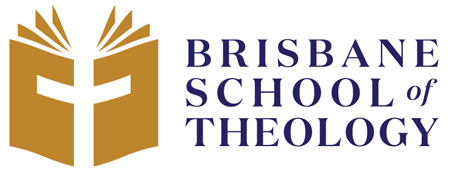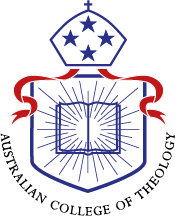Diploma of Ministry
UNDERGRADUATE
- 8 Units
- 1 year FT | up to 8 years PT
- 96 Credit Points
- FEE HELP
- OVERSEAS
Course Description
If you’re already actively involved in the life of your church, but feel that a qualification of some kind would help you to engage at a deeper level, the Diploma of Ministry may be a right fit for you.
The program will provide a good refresher of the knowledge and skills you’ve been gaining as you’ve served, as well as allowing you to test the waters of some new ministry areas. You’ll be given a clear understanding of the big-picture story of the Bible, from creation to final revelation, and handed the tools to better understand and explain it. Then the broad range of optional units means you can take a closer look at what’s involved in pastoral care and the discipleship of others, gain the basic principles of good leadership, or learn new ways to share the gospel cross-culturally.
The Diploma of Ministry offers a good mix of classroom-based teaching, group discussions with your peers and hands-on ministry experience, so you’re not just gaining theoretical knowledge but putting what you learn into action.
- Introduces students to the sources and content of the Christian story and message, and provides training which emphasises application and practice of this story and message in the contemporary world.
- Requires specialisation in disciplines by which knowledge of God is applied to guide Christian practice:
- Evangelism & Missiology (EM) and/or
- Pastoral & Church Focused Ministry (PC) and/or
- Developmental Ministry (DM)
- The course will integrate studies in the Bible and Christian tradition with practical experience and include supervised practice-based learning where appropriate
- Through elective units students can:
- Develop particular ministry skills in the three fields of Ministry & Practice
- Develop foundational understanding in the Bible and Christian Thought & History
ATAR: Completion of Year 12 in the last two years with an ATAR 65 or above; OR
Previous Qualifications: Successful completion of a qualification at AQF Level 5 or above; OR
Demonstrate Academic Suitability for course: Test, Brief Essay, or Interview.
Language Qualifications for NESB: IELTS 6.5 overall with minimum of 6.0 in each subtest OR 10 years in Australia with English being the language primarily spoken both at home and work.
Australian College of Theology Coursework Course Enrolment Policy
8 units | 96 credit points | 1 yr FT, up to 8 yrs PT | On-campus & off-campus live stream
Diploma of Ministry Course Structure:
2 units from Biblical Introduction
1 unit from Christian Thought
2 units from Ministry & Practice
3 elective units
Below are the units you can choose from each category.
Biblical Introduction
Old Testament introduction
Old Testament Foundations – OT001-512
Old Testament Prophets and Writings – OT002-512
New Testament introduction
Jesus and the Gospels – NT001-512
Early New Testament Church – NT002-512
Christian Thought
History
Christianity in History to 1550 – CH001-512
Christianity in History from 1550 to Modern Times – CH002-512
Theology
The Knowledge of God – TH001-712
Creation and the Fall, the Person and Work of Christ– TH102-712
The Doctrines of Grace and Eschatology – TH003-712
The Church and its Ministry– TH104-712
Philosophy & Ethics
Christian Ethics – PE001-512
Christian Apologetics – PE206-712
Old Testament exegesis
Pentateuch – OT008-712/OT009-712 (Hebrew exegesis available)
Former Prophets: 1 & 2 Samuel – OT010-712/OT011-712 (Hebrew exegesis available)
Exilic Prophecy (Isaiah 40-55) – OT014-712
The Psalms OT020-712
New Testament exegesis (in English or Greek)
The Synoptic Gospels: Luke – NT008-712/NT009-712
The Fourth Gospel – NT016-712/NT017-712
The Pastoral Epistles – NT014-712/NT015-712
Pauline Theology and Romans – NT018-712/NT019-712
Paul and Corinthian Christianity – NT010-712/NT011-712
Ministry & Practice
Evangelism and mission
Mission Perspectives – EM001-512
Principles of Evangelism – EM024-512
Ministry in a Culturally Diverse Context – EM018-712
Contextual Asian Ministry – EM031-712
Cross-Cultural Field Education – EM040-712
Child Abuse in Christian Communities: Prevention and Response – PC134-712
Pastoral and church-focused ministry
Pastoral Skills and Methods– PC003-712
Preaching I – PC047-712
Spiritual Formation for Professional Ministry – PC008-712
Congregational Field Education – PC092-712
Practical Ministry Field Education – PC094-712
Languages
Biblical Hebrew (A) – LA003-612
Biblical Hebrew (B) – LA004-612
New Testament Greek (A) – LA005-612
New Testament Greek (B) – LA006-612
Note: Biblical Introduction, Church History and Greek A & B are offered every year, while the other units run on a two-year cycle. Please refer to the college timetable to find out what is being offered each year.
A full-time study load is 4 units per semester. You can be full-time and study 3 units per semester; it will just take you longer to finish the course. A part-time study load is 1 or 2 units per semester.
Course Rules
- Maximum concurrent enrolment load: 60 cps
Knowledge and Understanding
1. Demonstrate essential knowledge of Ministry as an academic discipline with particular attention to at least one area of Ministry and Practice
2. Identify the essential biblical and theological foundations of Ministry
3. Recognize the essential theological, spiritual and ethical implications of Ministry knowledge and understanding
Inquiry and Analysis
4. Collect, summarize, and analyse information from standard biblical, theological and social scientific sources and scholarship
Problem Solving and Integration
5. Construct evidence-based perspectives and responses to essential Ministry issues by using standard source materials and methods
Communication
6. Present essential Ministry ideas, knowledge and principles to, and engage with, different audiences using a variety of formats
Teamwork and Professional Practice
7. Under supervision, apply essential Ministry understanding in formal ministry contexts and the wider community
Engagement With the World
8. Engage with essential challenges of contemporary Christianity, society and the wider world
Continuous Learning and Professional Development
9. Demonstrate a capacity for reflection and learning to sustain personal and professional development in Christian life and ministry
BST Timetable, Calendar and Fees
This course is FEE-HELP and Centrelink approved.
What is FEE-HELP?
FEE-HELP is a loan that helps eligible fee paying students pay their tuition fees.
For eligibility and more information on FEE-HELP go to:
https://www.studyassist.gov.au/help-loans/fee-help
This course is registered on CRICOS (054659K) and is available to overseas students. Further information for overseas students can be found on our overseas student page.
Overseas students can apply here.
When you have completed the Diploma of Ministry you can continue your studies with the Advanced Diploma of Ministry. It involves all the components of the regular Diploma, but you need a total of 144 credit points (12 units) to complete it – that means you get to choose four additional units and will probably be studying for one semester longer than if you just do the Diploma.
Andy Coller
Church Relationship Coordinator at Baptist World Aid (Australia)
“I came to BST not knowing what God had in store for the future, but I was able to meet with so many people from different ministry settings that it really opened my eyes to the possibilities. In fact college opened my eyes in a lot of ways – we were never spoon fed a party line, but shown different theological perspectives and encouraged to work out what we believed and why. That’s been a great foundation for my work, and really all of my life, over the years.”
Robert Harvey
Former missionary (various countries in Africa)
“At BST I was formed by the people of God and the word of God. What a privilege it was to get to know the people – staff and students, each with their unique gifts, abilities and idiosyncrasies, but each one a part of my life through the input they had into it. And what a privilege to study and be changed by the word – the strong emphasis on the authority of the Bible helped prepare me to preach it with conviction, affection and dedication; to apply it in defense of my faith when in confrontation; and to stand upon its unfailing promises in times of doubt and difficulty.”




